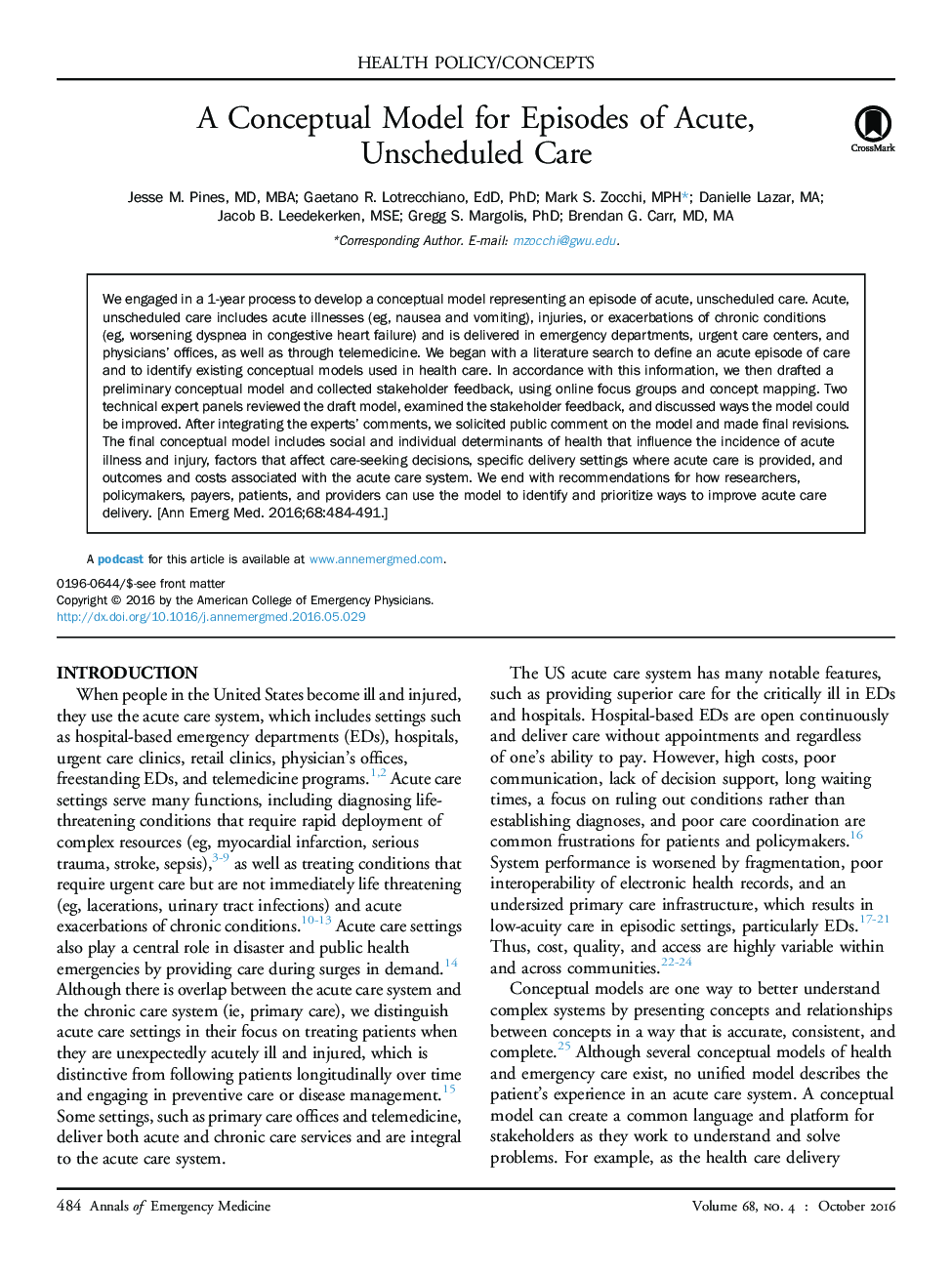| Article ID | Journal | Published Year | Pages | File Type |
|---|---|---|---|---|
| 3228149 | Annals of Emergency Medicine | 2016 | 11 Pages |
Abstract
We engaged in a 1-year process to develop a conceptual model representing an episode of acute, unscheduled care. Acute, unscheduled care includes acute illnesses (eg, nausea and vomiting), injuries, or exacerbations of chronic conditions (eg, worsening dyspnea in congestive heart failure) and is delivered in emergency departments, urgent care centers, and physicians' offices, as well as through telemedicine. We began with a literature search to define an acute episode of care and to identify existing conceptual models used in health care. In accordance with this information, we then drafted a preliminary conceptual model and collected stakeholder feedback, using online focus groups and concept mapping. Two technical expert panels reviewed the draft model, examined the stakeholder feedback, and discussed ways the model could be improved. After integrating the experts' comments, we solicited public comment on the model and made final revisions. The final conceptual model includes social and individual determinants of health that influence the incidence of acute illness and injury, factors that affect care-seeking decisions, specific delivery settings where acute care is provided, and outcomes and costs associated with the acute care system. We end with recommendations for how researchers, policymakers, payers, patients, and providers can use the model to identify and prioritize ways to improve acute care delivery.
Related Topics
Health Sciences
Medicine and Dentistry
Emergency Medicine
Authors
Jesse M. MD, MBA, Gaetano R. EdD, PhD, Mark S. MPH, Danielle MA, Jacob B. MSE, Gregg S. PhD, Brendan G. MD, MA,
